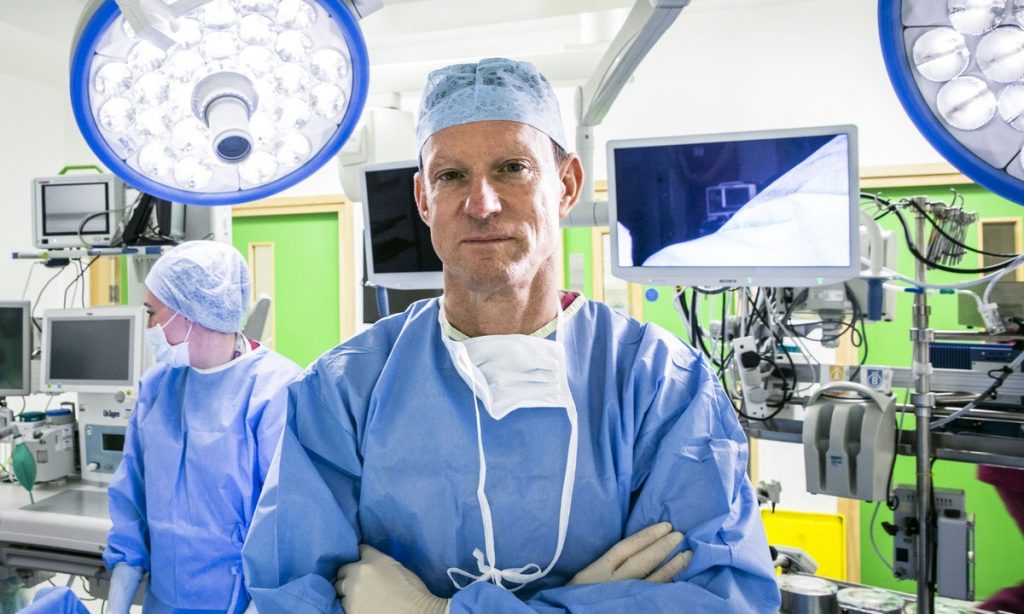Solving the mystery behind Cerebellar Mutism Syndrome
Fast facts
- Official title: Nordic and UK study of the cerebellar mutism syndrome (CMS) in children with brain tumours of the posterior fossa
- Lead researcher: Mr Conor Mallucci
- Where: Alder Hey Children’s Hospital
- When: June 2017 – November 2021
- Cost: £111,612
- Research type: Paediatric, Medulloblastoma (High Grade), Clinical
- Award type: Quality of Life
What is it?
Surgery in the areas to the rear of the skull, also known as the posterior fossa or cerebellum, can cause long lasting negative effects in children. These effects include loss of muscle tone, memory troubles, unsteadiness, and decreased ability to talk. These effects are collectively known as Cerebellar Mutism Syndrome (CMS) or Posterior Fossa Syndrome.
This research project, led by Mr Mallucci, aims to further understand CMS to ultimately help reduce the number of children affected by CMS and improve the management of this condition. This multi-centre study will recruit 500 children with CMS from across the UK and Scandinavia and assess their clinical and imaging data. In particular this study will:
- Explore which surgical methods are associated with CMS and if there’s a difference in risk between first surgery and re-operation.
- Determine which patients may be more likely to develop CMS, due to their genes.
- Examine the number of cases and the progression of the CMS according to tumour type, treatments and any other adverse effects participants experience.
- Determine if features seen on imaging could predict both occurrence and severity of CMS.
- Evaluate the burden on patients and their carers, and their rehabilitation needs.
To accomplish the above aims, blood samples will be taken from children to conduct genetic analyses and assessments such as speech evaluation will also be conducted.
Mr Mallucci will be carrying out a multi-centre study to investigate Cerebellar Mutism Syndrome (CMS), a.k.a. Posterior Fossa Syndrome, a serious and poorly understood late effect resulting from surgical complication. It is seen in up to 25% of children after removing tumours from the very back of the skull, known as the cerebellum.
This study will explore the surgical methods associated with CMS and determine whether some patients are at higher risk of developing CMS in order to enhance treatment and improve quality of life. With a greater understanding of CMS they hope to ultimately prevent and reduce the number of children who have CMS after surgery.
Why it’s important
CMS is seen in up to 25% of children after surgery in areas to the rear of the skull. This condition can have major negative impacts on the quality of life of affected children and is frequently associated with permanent, and sometimes devastating, effects. CMS is a poorly understood condition and little is known on how to prevent or treat it. This research project is vital to help us further our understanding of this condition.
Who it will help
This research project could help countless children and young adults who are brain tumour survivors. This project aims to help both prevent CMS from occurring and improve the management of this condition when it does occur, to improve the quality of life of those affected.
Milestones
Achieved
- The trial has been steadily recruiting children across the five centre in the UK and they now have a total of 100 participants.
- All the participants are currently undergoing assessment.
Upcoming
- Once the study is concluded, the researchers will analyse the results from the genetic tests, as well as other assessments, which will help us understand how the number of cases of this condition can be reduced and treatments improved.
If you have any questions about this, or our other research projects, please contact us on research@thebraintumourcharity.org
Research is just one other way your regular gift can make a difference
Research is the only way we will discover kinder, more effective treatments and, ultimately, stamp out brain tumours – for good! However, brain tumours are complex and research in to them takes a great deal of time and money.
Across the UK, over 100,000 families are facing the overwhelming diagnosis of a brain tumour and it is only through the generosity of people like you can we continue to help them.
But, by setting up a regular gift – as little as £2 per month – you can ensure that families no longer face this destructive disease.

Mr Conor Mallucci is a Consultant Paediatric Neurosurgeon at Alder Hey Children’s Hospital in Liverpool.